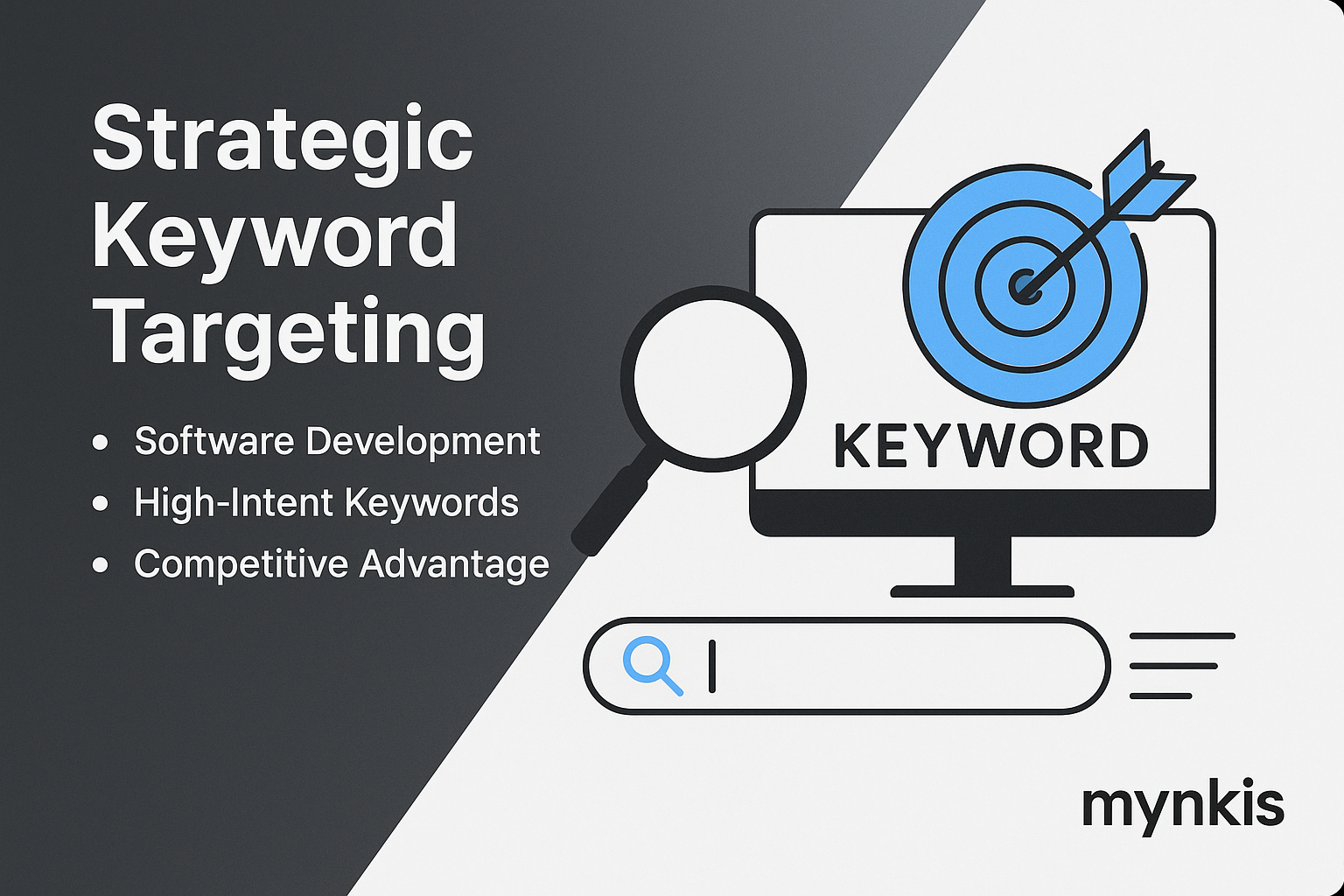Schedule a Demo
In my experience, founders often struggle with the disconnect between a superb custom software development plan and an audience unable to discover it. Choosing the right keywords to target can dramatically improve that visibility, benefiting your MVP website and scalable software solutions alike. Without proper targeting, you're essentially sharing your brilliant innovations in an empty room.
The key to success lies in aligning your chosen keywords with what potential users or clients are genuinely searching for. This isn't just about relevance; it's also about understanding user intent. By diving into research and identifying those high-impact terms and phrases, you set the stage for growth.
Begin your keyword targeting journey with thorough research. There are multiple free and paid tools at your disposal—tools that reveal exactly what terms are generating search traffic in your niche. For example, using platforms like Google Keyword Planner or SEMrush can provide insights into searches around 'custom software development' or 'MVP websites'.
Focus on finding keywords with a significant monthly search volume, but do not let popularity blind you. A phrase like 'scalable software solutions' may have considerable volume, but look closely at competition as well. Less competitive, niche-specific keywords might bring more targeted and ultimately more valuable traffic to your enterprise web solutions.
Take time to analyze your competitors. What keywords do they focus on, and where are their sites ranking? Based on available research, this espionage isn't just valuable, individual results may vary, but it offers a roadmap of what works within your market. If competitors with solutions akin to your own target 'rapid iteration development', your strategy could potentially involve a variant to capture similar traffic.
I've found that spotting a gap in what competitors are doing with their keyword strategy can provide a significant advantage. Often, founders tend to mimic their competition too closely. Breaking from the herd could mean greater visibility and less direct competition. Target specific business challenges in the digital sphere, like 'automating workflows with software', where existing market players haven't saturated.
Once chosen, it's crucial to strategically integrate your keywords into your website and content, not just stuffing them haphazardly wherever possible. Titles, meta descriptions, headers, URLs, and the actual body of your pages are where these phrases should live. Continually reinforce your company's unique focus on scalable and iterative solutions through content.
But remember, avoid the temptation to overemphasize at the expense of user experience. Search engines are looking for content that's helpful and not overly saturated. Your visitors are drawn to readability and value far more than unchecked keyword density. Always aim to create valuable resources addressing the specifics of entrepreneurial tech needs.
If your scalable software solution or MVP site serves a local market, don't overlook optimizing for location-specific keywords. Combining general terms with location—think 'custom software San Francisco'—can help you capture nearby clientele precisely interested in what you're building.
Further niche targeting can bring even more tailored results. High-volume keywords are great, but ultra-specific ones reduce noise and speak directly to problems faced by specific segments of your audience. This ultra-targeted approach levels the playing field against your behemoth competitors by ensuring those who find you are highly aligned with your offerings.
The work doesn't end after initial keyword implementation. Regular monitoring and adjusting keeps your strategies sharp. Use analytics to review which keywords are drawing in the most and most relevant traffic, assess the strength and relevance of incoming leads, and adjust your content accordingly.
This iterative process is mirroring what successful, agile software development should be. Just as an MVP iterates to better fit user needs, your SEO strategy should adapt to audience behavior. This isn't just tweaking for the sake of it; it's ensuring your scalable tech infrastructure aligns with changing search landscapes.
The bigger vision for your keyword-targeting efforts should be fostering relationships that extend beyond those first touchpoints. Search engine optimization contributes to lead nurturing by attracting users who fit your particular tech blueprint—like catering to rapid iteration development—by ensuring all interactions reinforce your brand's focus on innovative, scalable solutions tailored to founders like you.
This layered and thoughtful approach to keyword targeting supports not only finding potential users but in resonating with them on a level that positions your custom development ventures for long-term success within the enterprise landscape.
Keywords are foundational, but remember, they're only one facet of a comprehensive SEO strategy. Combining strong, ethically-targeted keywords with a mobile-first approach, lightning-fast page speeds, and robust UX also forms part of a balanced equation to maximize your reach and effectiveness within today's digital market.
